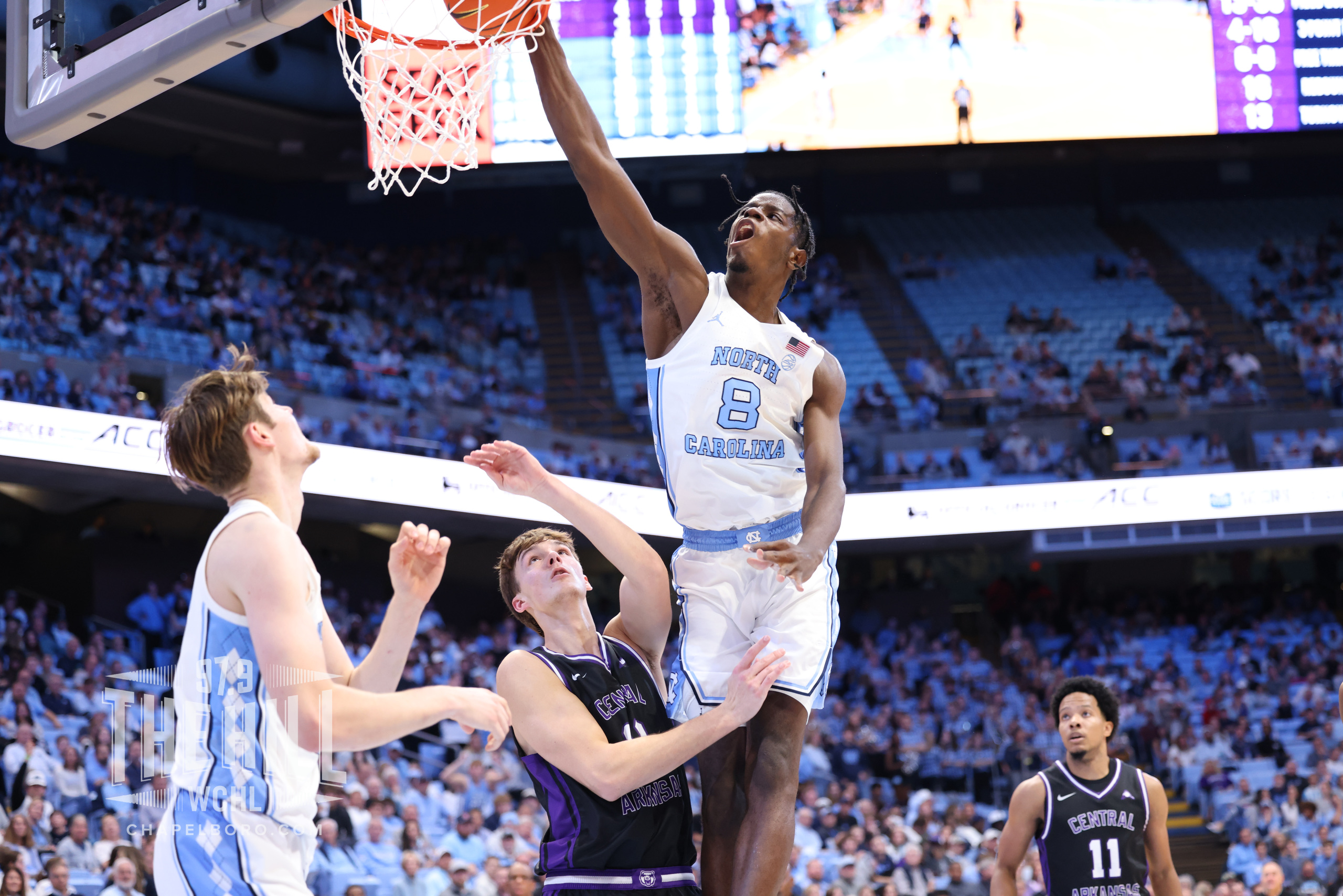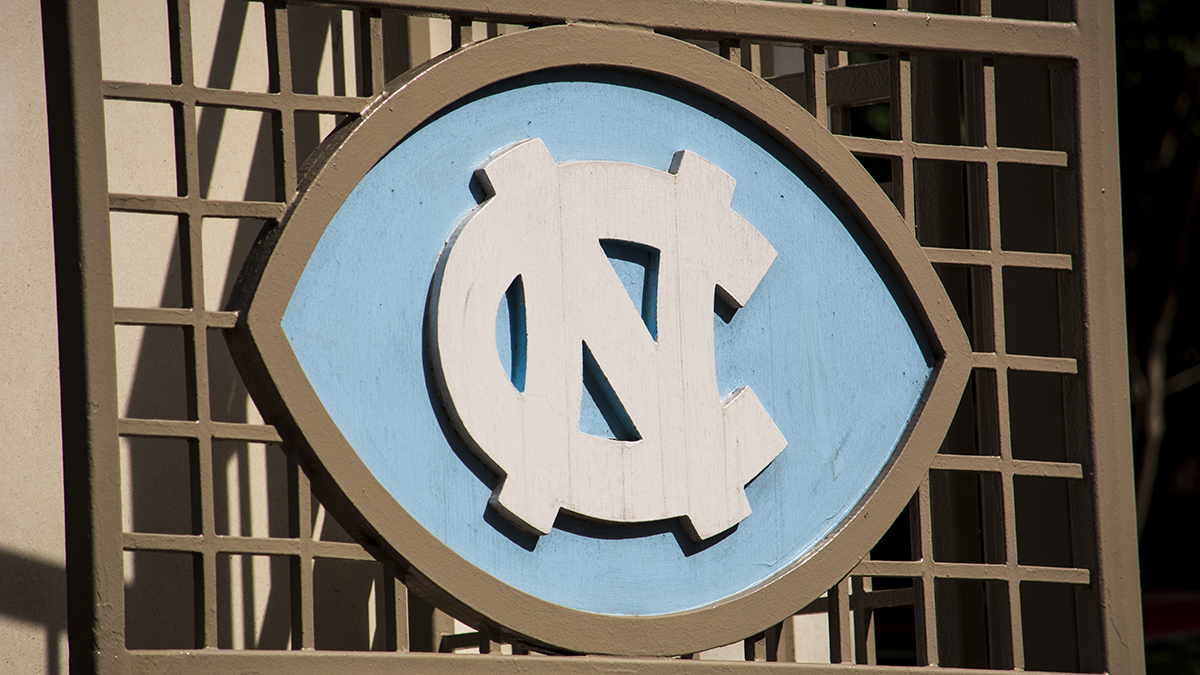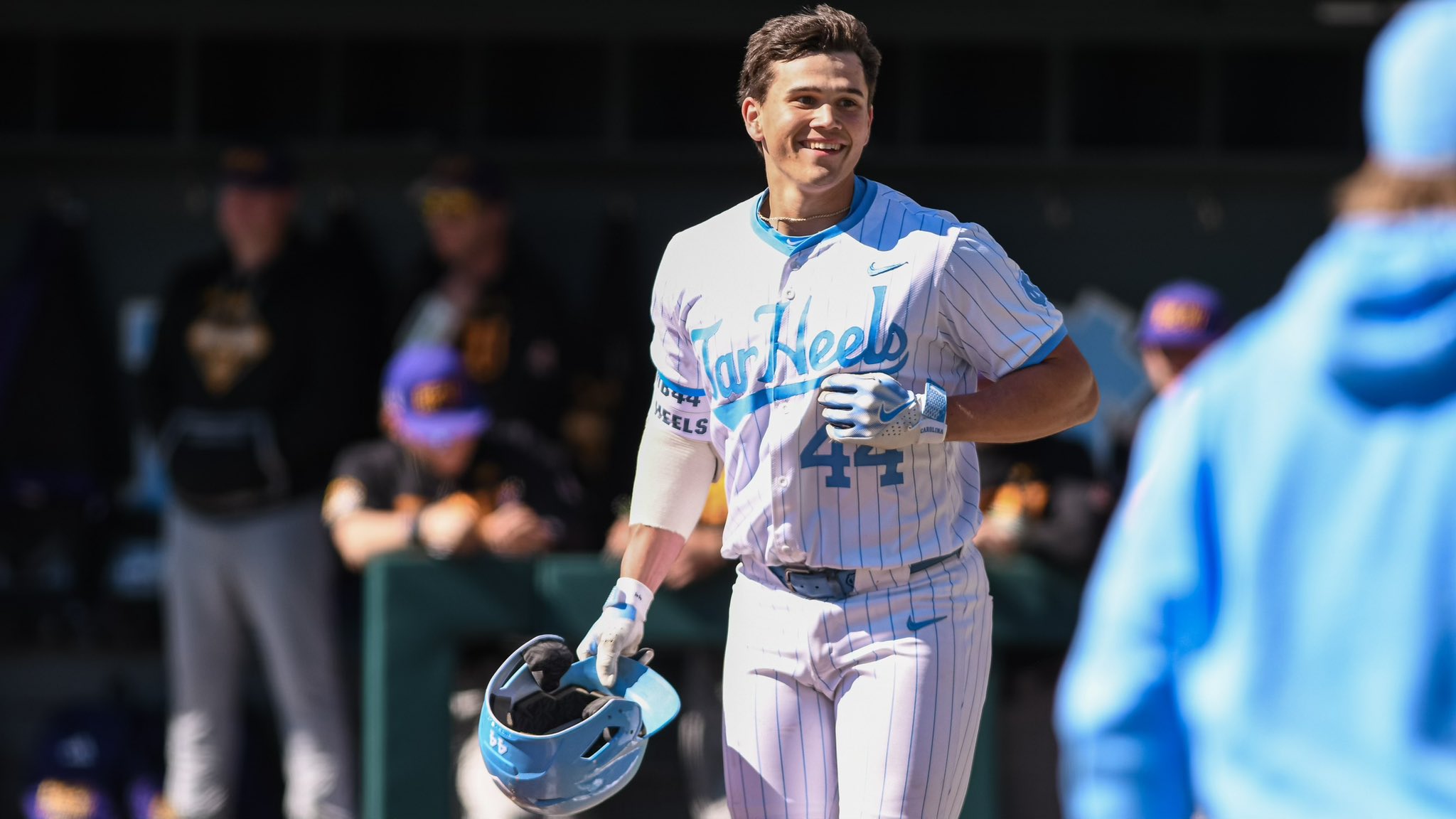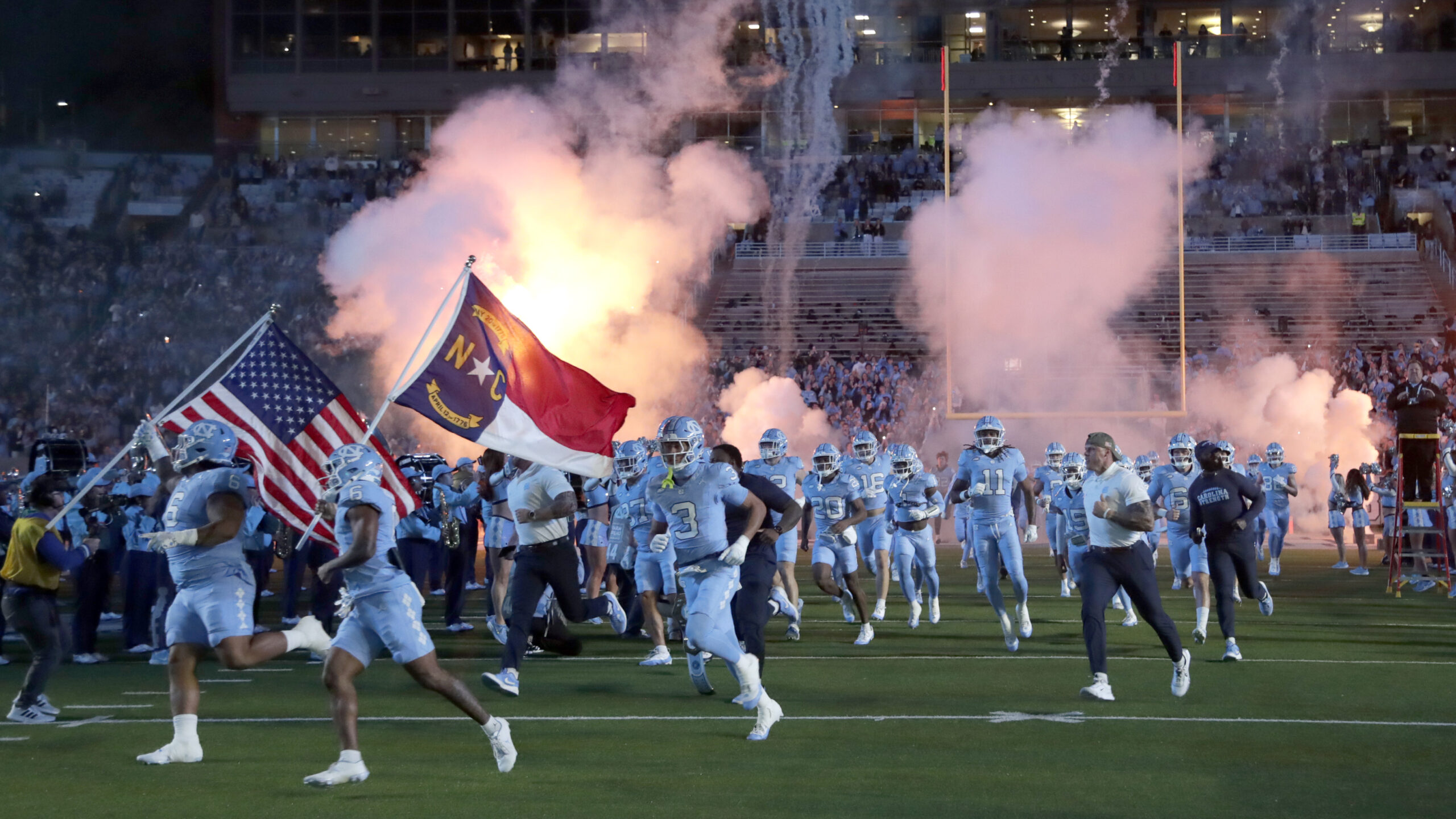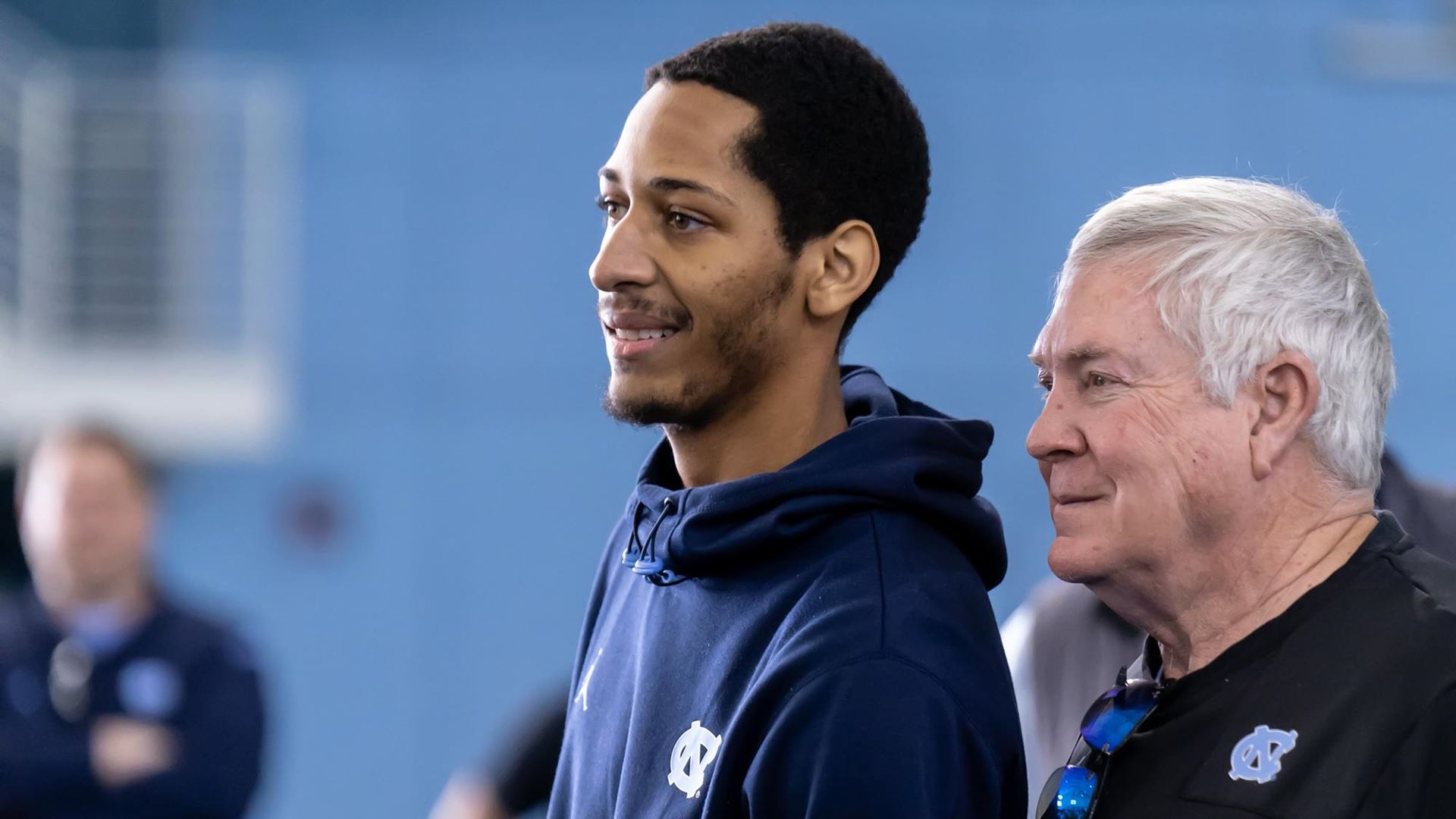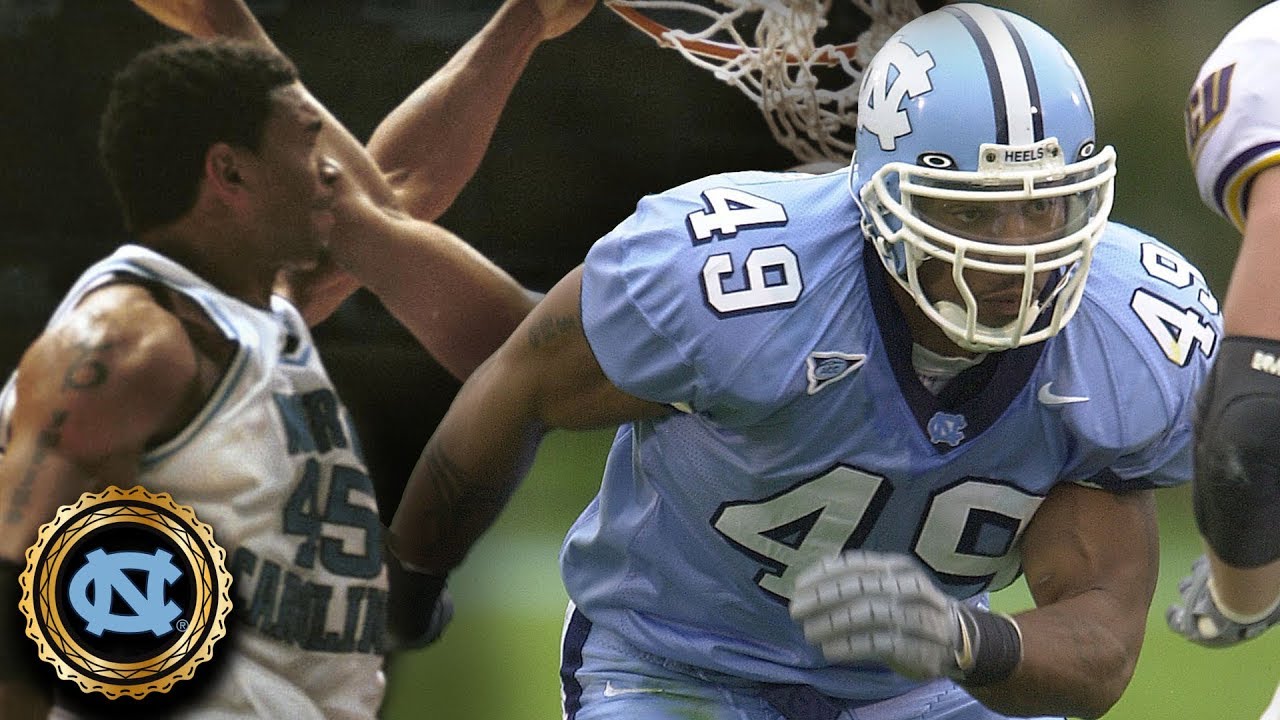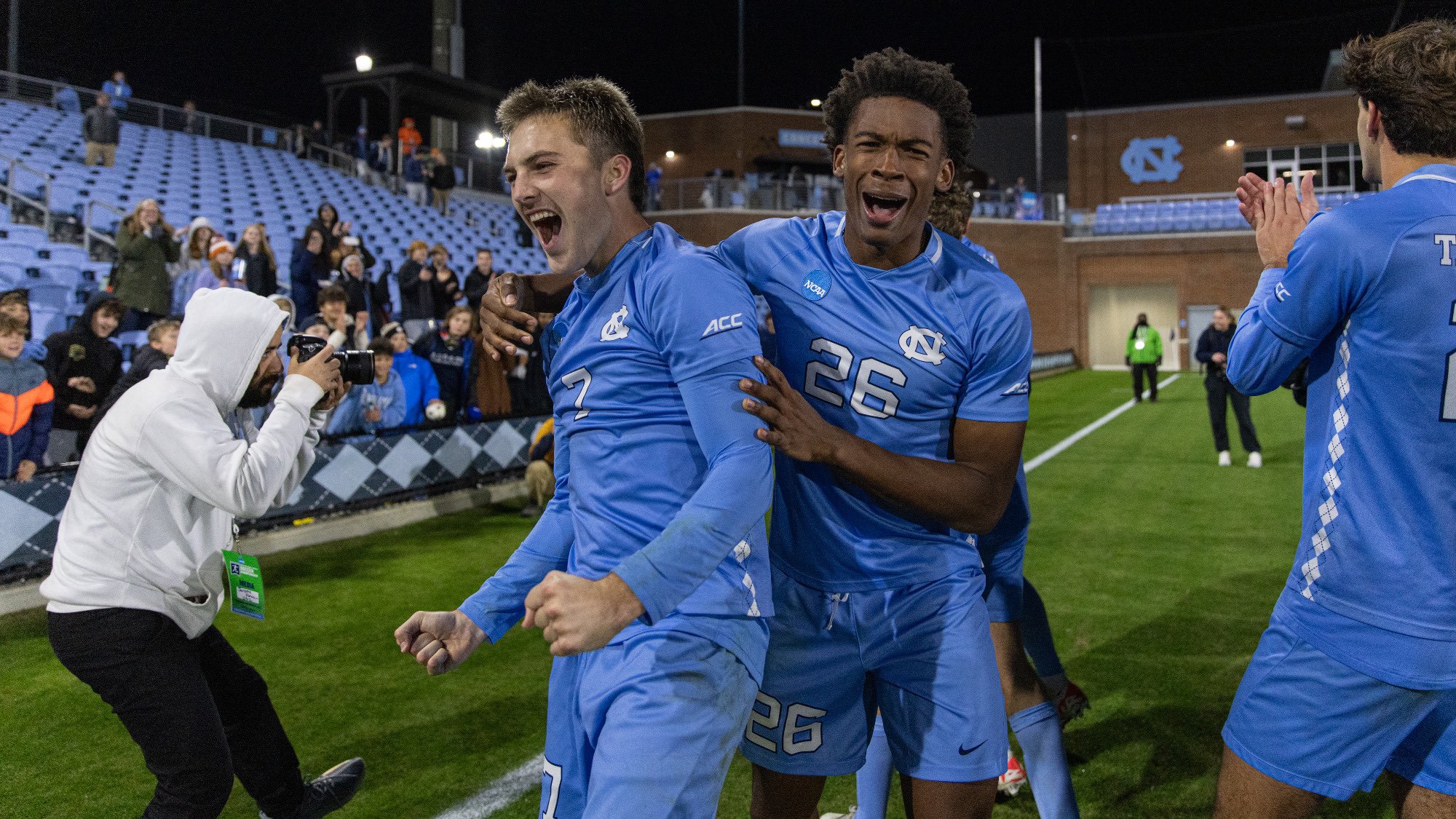UNC basketball’s Marcus Paige was joined by five other student athletes Thursday to share testimony about the challenges and triumphs they have experienced during their academic careers at the University, which was in sharp contrast to the claims made earlier this week by two former Carolina football players.
Paige, a star point guard and second-team Academic All-American, spoke during the presentation called “A day in the life of a student athlete,” before the UNC Board of Trustees. He was joined by three UNC football players, Ryan Switzer, Tim Scott and Kemmi Pettway, gymnast Michelle Ikoma, and softball great, pitcher Lori Spingola.
“We know how hard we work in the classroom. It is not fair to us to get all of that negative attention when we spend so much time working so hard to get a degree just like everyone else,” Paige said.
Director of Athletics Bubba Cunningham said it was a chance to give the Trustees “a representation” of the more than 800 student athletes who attend UNC.
“We frequently just view [student athletes] when they are competing, but this is another opportunity to get them off the fields, out of gyms, and talk to them as real students,” Cunningham said.
The athletes gave positive reviews of the academic support they have received so far, championing various leadership programs and tutoring initiatives, such as MAP, or “My Academic Plan,” which provides additional academic support for athletes who need it.
That was not the same sentiment shared this week regarding UNC’s academic influence on its athletes. On Tuesday, two new, former Carolina football players, Deunta Williams and Byron Bishop, said, each on separate HBO and ESPN programs, that they were encouraged to take no-show classes in order to retain their athletic eligibility during their collegiate careers.
Along with Williams, whistle-blower Mary Willingham, a former athletic tutor, also appeared in the ESPN documentary.
Cunningham did not directly comment on the two specials that aired this week, saying that he wanted to focus on the students currently enrolled at UNC. He said that he wanted to concentrate on providing the maximum number of opportunities for athletes to play collegiate sports and creating a solid educational experience for student athletes once enrolled.
Paige shared that he and his teammates tried to not pay attention to the negative press swirling around UNC, adding that “we all can read and write.”
“There was definitely no one telling us what we had to do or what classes [to take], or even pushing us or suggesting a major,” Paige said.
Trustee Dwight Stone said the school has taken some “undeserved shots in the media” regarding athletic/academic relations. He said that no one could realize the time and effort it takes to be a student athlete at Carolina unless they “walked in their shoes.”
In January, Willingham raised questions about the literacy levels of past Tar Heel basketball and football players as documented in the now infamous CNN article. Her research also prompted concerns about past admission guidelines under which many athletes were enrolled.
In response, UNC officials said then that there isn’t a “one-size-fits-all” policy in judging applicants and that some students are admitted for their “special talents.”
Switzer shared that football provided him the chance to go to Carolina that he wouldn’t have gotten otherwise.
“I am not ashamed to admit that I wouldn’t be at a university like this is if it weren’t for my athletic ability,” Switzer. “I was a decent student in high school, but this University is so high that I couldn’t get here on academics alone. Football has created a lot of opportunities for me that I wouldn’t have if I didn’t play it.”
Switzer said that is was often “a struggle” to manage both roles as a student and an athlete, but he thought that his fellow student athletes were some of the “most disciplined” people he had ever met.
He also said that he originally wanted to major in nursing but decided not to because of the time commitment.
Cunningham said that “time,” or lack of it for student athletes, was another concern.
“I think we should really take a hard look at time and see if there is a better way to organize the day so that student [athletes] can get a full educational experience,” Cunningham said.
UNC Chancellor Carol Folt said that all student athletes struggle with time constraints. She said that the University’s mission is to help them find balance.
“My goal is to help them find a way to get the classes and the majors that they want, while also being able to achieve the excellence that they want,” Folt said.
Folt and Willingham To Meet
Folt confirmed that Willingham had contacted her about setting up a time to meet, to which Folt agreed.
“She gave me an agenda and said that she would like to share her personal story with me and that she would like to share her opinion with me about athletics and academics,” Folt said.

